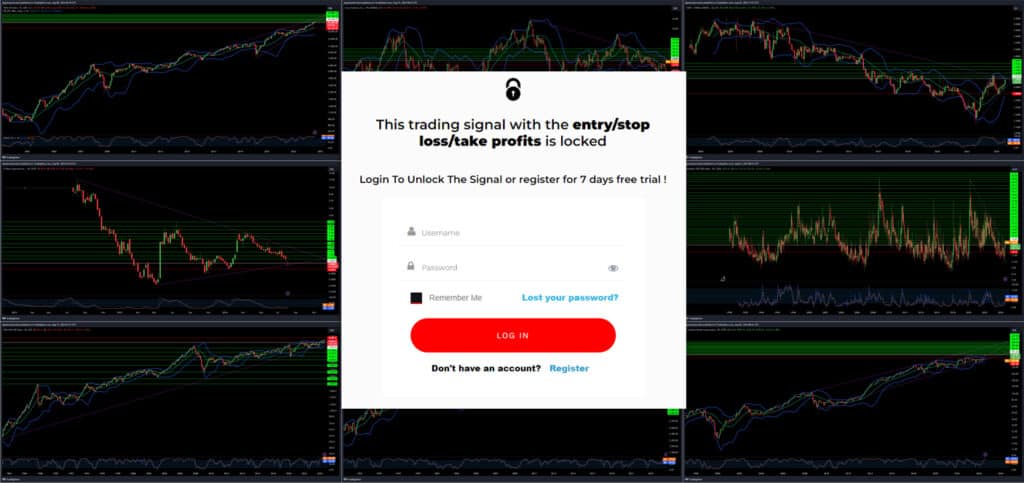Welcome to the fascinating world of forex trading! If you’re a beginner eager to enter this lucrative financial market, it’s essential to understand the intricacies of forex trading orders. By familiarizing yourself with different types of orders, you can gain control over your trades and enhance your chances of market mastery. In this comprehensive guide, I will take you through the basics of forex trading orders, providing you with the necessary knowledge to begin your trading journey with confidence.
Key Takeaways:
- Forex trading orders play a crucial role in executing trades in the forex market.
- Understanding the different types of orders, such as market orders, limit orders, stop orders, and more, is essential for effective trading.
- Each type of order has its own purpose and advantages, allowing you to take advantage of market opportunities and manage risk.
- Learning how to use trailing stops, take profit orders, and stop-loss orders can help you optimize your trading strategy and protect your capital.
- Practice using different types of orders on a demo account before implementing them in live trading to gain confidence and refine your skills.
Understanding the Basics of Forex Trading
To begin your forex trading journey, it’s important to grasp the fundamental concepts and terms related to the market. This will help you navigate the complexities of forex trading and make informed trading decisions.
Currency Pairs: Forex trading involves buying one currency and selling another simultaneously. Currency pairs represent the value of one currency relative to another. The most commonly traded currency pairs include EUR/USD, USD/JPY, and GBP/USD.
Exchange Rates: Exchange rates determine the value of one currency in terms of another. Forex traders closely monitor exchange rates as they fluctuate, providing opportunities for buying and selling currencies at favorable rates.
Pips: Pips, short for “percentage in point,” are the smallest unit of measure in forex trading. They represent the smallest price change in a currency pair and determine the potential profit or loss in a trade.
Leverage: Leverage allows forex traders to control larger positions in the market with a smaller amount of capital. It amplifies both potential profits and losses. Traders must use leverage responsibly and understand the risks involved.
By familiarizing yourself with these forex trading basics, you’ll lay a strong foundation for your trading journey. Let’s delve further into the mechanics of the forex market and the key players involved.
The Forex Market and Major Players
The forex market is a decentralized global marketplace where currencies are traded. It operates 24 hours a day, five days a week, across major financial centers worldwide. Understanding how the market functions and who the major players are is essential to becoming a successful forex trader.
The forex market is primarily driven by supply and demand forces, which are influenced by various economic, geopolitical, and market factors. Key players in the forex market include:
- Central Banks: Central banks, such as the Federal Reserve (Fed) in the United States, play a crucial role in the forex market. They implement monetary policies that impact interest rates and influence the value of their respective currencies.
- Commercial Banks: Commercial banks participate in forex trading to facilitate transactions for their clients. They provide liquidity to the market and trade on behalf of customers.
- Institutional Investors: Institutional investors, such as hedge funds and pension funds, engage in forex trading to diversify their investment portfolios and seek profitable opportunities.
Understanding the mechanics of the forex market and the involvement of major players will enable you to analyze market trends, anticipate price movements, and make informed trading decisions.
| Term | Definition |
|---|---|
| Currency Pairs | Represent the value of one currency relative to another; e.g., EUR/USD |
| Exchange Rates | Determine the value of one currency in terms of another |
| Pips | The smallest price change in a currency pair; determine potential profit or loss |
| Leverage | Allows traders to control larger positions with a smaller amount of capital |
Now that you have a solid understanding of the basics of forex trading, including currency pairs, exchange rates, pips, and leverage, you’re ready to explore further and delve into educational resources to enhance your trading knowledge. In the next section, I will guide you through the importance of continuous learning and the available resources to help you become a well-informed forex trader.
Educate Yourself on Forex Trading
Forex trading is a skill that requires continuous learning and improvement. Aspiring traders must lay a solid foundation of knowledge through various educational resources.
1. Books
Books serve as valuable learning resources for forex trading education. Some recommended titles include:
- “Japanese Candlestick Charting Techniques” by Steve Nison
- “Trading in the Zone” by Mark Douglas
- “The Little Book of Currency Trading” by Kathy Lien
2. Online Courses
Online courses offer structured learning opportunities for traders at all skill levels. Some popular platforms that offer forex trading courses include:
- Udemy
- Coursera
- BabyPips
3. Webinars
Attending webinars hosted by experienced traders and industry experts can provide insights into trading strategies and risk management techniques. Keep an eye out for webinars offered by reputable forex education providers, brokers, or trading communities.
4. Reputable Websites
Reputable websites dedicated to forex trading education offer a wealth of resources, including articles, tutorials, forums, and market analysis. Some trusted websites to explore include:
- Investopedia
- DailyFX
- ForexFactory
It’s crucial to prioritize learning about different trading strategies, technical analysis tools, and risk management techniques. Experiment with different approaches and develop a holistic understanding of the forex market.
Once you have acquired theoretical knowledge, it’s time to put it into practice. Many brokers offer demo accounts that allow you to simulate real trading conditions without risking your capital. Take advantage of these accounts to gain hands-on experience in a risk-free environment.
Remember, forex trading is a journey that requires continuous learning and adaptation. By investing time and effort into furthering your education, you can enhance your trading skills and increase your chances of success in the dynamic world of forex trading.
Choose a Reliable Broker
Choosing a reliable forex broker is a crucial step towards success in your trading journey. With numerous brokers available in the market, it’s important to conduct thorough research and consider key factors that will impact your trading experience. Let’s explore the essential elements you should assess when selecting a broker:
Regulation and Security
When entrusting your funds to a broker, it’s vital to ensure they are regulated by reputable financial authorities. Regulation provides a level of security and ensures that the broker adheres to strict guidelines and fair trading practices. Look for brokers licensed by renowned regulatory bodies such as the Financial Conduct Authority (FCA), the Australian Securities and Investments Commission (ASIC), or the Cyprus Securities and Exchange Commission (CySEC).
Trading Platforms
The trading platform is your gateway to the forex market. It’s essential to choose a broker that offers a robust and user-friendly trading platform. A reliable broker will provide access to popular platforms such as MetaTrader 4 or MetaTrader 5, which offer advanced charting tools, customization options, and seamless trade execution.
Customer Support
Reliable customer support is crucial, especially for traders who may require assistance at any time. Look for brokers that offer responsive and efficient customer support channels such as live chat, email, or phone. Prompt and knowledgeable customer support can make a significant difference in resolving issues or answering your queries in a timely manner.
Account Types
Consider the different account types offered by brokers. They may have varying features, minimum deposit requirements, and spreads. Choose an account type that aligns with your trading preferences and financial capabilities. Some brokers offer specialized account types for beginners or advanced traders, catering to specific needs.
Fees and Commissions
Take into account the fees and commissions charged by the broker. These can include spreads, swap rates, or withdrawal fees. Compare the cost structures of different brokers to ensure you find a balance between competitive pricing and the quality of services provided.
Remember that selecting a reliable broker is a crucial foundation for your forex trading journey. Take the time to assess and compare different brokers based on their regulation, trading platforms, customer support, account types, and fees. By choosing wisely, you can set yourself up for a smooth and successful trading experience.
Develop a Trading Plan
Before entering the forex market, it’s crucial to create a well-defined trading plan. A trading plan serves as a roadmap, outlining your trading goals, risk tolerance, preferred trading style, and strategies. By having a clear plan, you can navigate the market with confidence and discipline.
Trading goals: Start by setting specific and achievable goals for your forex trading journey. Whether it’s generating consistent income or building long-term wealth, clearly define what you aim to achieve through your trading activities.
Risk tolerance: Assess your risk tolerance level, which refers to your comfort level with potential losses. Understand that forex trading involves risks, and it’s important to determine how much risk you’re willing to take on each trade.
Trading style: Define your preferred trading style based on your personality and availability. Are you inclined towards scalping, day trading, swing trading, or position trading? Choose a style that aligns with your strengths, time commitments, and trading preferences.
Strategies: Explore different trading strategies, such as trend following, breakout trading, or support and resistance trading. Each strategy has its own principles and indicators. Choose the ones that resonate with you and align with your trading goals.
Capital allocation: Determine the amount of capital you’re willing to invest in forex trading. It’s important to allocate your capital wisely across different currency pairs, spreading your risk and maximizing opportunities.
Entry and exit points: Establish clear guidelines for entering and exiting trades. Use technical analysis tools, such as support and resistance levels, moving averages, or indicators like RSI or MACD, to identify potential entry and exit points for profitable trades.
Discipline: Develop a disciplined approach to stick to your trading plan. Avoid impulsive decisions driven by emotions and adhere to your predefined rules. Consistency and discipline are key to long-term success in forex trading.
Remember, your trading plan is a dynamic document that can be adjusted over time as you gain experience and insights. Continuously evaluate and refine your plan to align with your evolving goals and market conditions.
Practice Risk Management
Risk management is an essential aspect of forex trading that can significantly impact your overall success. By implementing effective risk management strategies, you can protect your capital and minimize potential losses, allowing you to trade with confidence and consistency.
One crucial tool in risk management is the use of stop-loss orders. These orders help limit your downside by automatically closing a trade when it reaches a specified price level. By setting appropriate stop-loss orders, you can define your maximum acceptable loss for each trade, ensuring that your losses are controlled and manageable.
Determining your risk tolerance is another critical step in risk management. It is important to understand how much risk you are willing to take on and what level of potential loss you are comfortable with. This knowledge will guide your trade sizing decisions and help you allocate your capital effectively.
Trade sizing plays a vital role in risk management. It involves determining the appropriate position size for each trade based on your risk tolerance and the specific trade setup. Avoid risking a significant portion of your account on a single trade, as this can expose you to excessive risk. Instead, aim to distribute your capital across multiple trades and currency pairs to diversify your risk.
Preserving your capital is crucial for long-term success in forex trading. By effectively managing your risk, setting stop-loss orders, and carefully sizing your trades, you can protect your trading capital and ensure that losses do not excessively erode your account. Remember, capital preservation is a key foundation for sustainable profitability and growth.
When managing your risk, always prioritize capital preservation alongside the pursuit of profits. Implementing effective risk management strategies will not only safeguard your trading capital but also provide you with the necessary discipline and mindset to navigate the ever-changing forex market.
Conclusion
In my forex trading journey, I have realized that success requires more than just financial gains. It is a continuous learning process that demands adaptability, risk management, ethical trading practices, and a balanced lifestyle.
Continuous learning is essential to stay ahead in the ever-evolving forex market. Keeping up-to-date with industry trends, new trading strategies, and technical analysis tools can provide a competitive edge. By investing time in expanding your knowledge and understanding various market dynamics, you can make informed trading decisions.
Risk management is paramount in forex trading. Setting realistic goals, determining your risk tolerance, and implementing effective risk management strategies such as stop-loss orders ensure capital protection and enable consistent performance in the long run.
Furthermore, ethical trading practices are crucial for fostering trust and credibility in the forex market. By adhering to fair trading principles, treating fellow traders with respect, and avoiding unethical practices, you contribute to maintaining a healthy trading environment.
Lastly, maintaining a balanced lifestyle is often overlooked but plays a significant role in achieving long-term success. Taking breaks, managing stress, and pursuing other interests outside of trading can help to cultivate a healthy mindset and prevent burnout.
Embark on Your Forex Trading Journey
In conclusion, the journey of forex trading is an ongoing process of growth and development. As you navigate the complexities of the market, remember the importance of continuous learning, risk management, ethical trading practices, and maintaining a balanced lifestyle. Commit to your trading plan, stay disciplined, and adapt to the ever-changing landscape of the forex market. With dedication and perseverance, you can seize opportunities for market mastery and achieve your financial goals.
FAQ
What are the different types of forex trading orders?
The different types of forex trading orders include market orders, limit orders, stop orders, and trailing stop orders. Market orders are executed at the current market price, limit orders are executed at a specified price or better, stop orders are executed when the market price reaches a specified level, and trailing stop orders automatically adjust the stop price as the market price moves in your favor.
What are currency pairs in forex trading?
Currency pairs in forex trading refer to the two currencies that are being traded against each other. For example, the EUR/USD pair represents the euro against the U.S. dollar. Each currency pair has a specific exchange rate that determines how much of the quote currency is needed to buy one unit of the base currency.
What are pips in forex trading?
Pips, or “percentage in point,” are the smallest unit of price movement in a currency pair. Most currency pairs are quoted to four decimal places, so a pip is typically equal to 0.0001. However, some currency pairs, such as the Japanese yen pairs, are quoted to two decimal places, making one pip equal to 0.01.
What is leverage in forex trading?
Leverage in forex trading allows traders to control larger positions with a smaller amount of capital. It is expressed as a ratio, such as 1:100, where for every dollar in the trading account, the trader can control $100 in the forex market. While leverage can amplify profits, it also increases the potential for losses, so it should be used carefully.
Where can I find educational resources for forex trading?
There are many educational resources available for forex trading, including books, online courses, webinars, and reputable websites. These resources can provide a solid foundation of knowledge on various trading strategies, technical analysis tools, and risk management techniques. It’s important to choose educational materials from reputable sources to ensure quality information.
How can I choose a reliable forex broker?
To choose a reliable forex broker, look for brokers that are regulated by reputable financial authorities. Regulation provides security and ensures fair trading practices. Evaluate factors such as trading platforms, customer support, account types, and fees when making your decision. Opt for a broker that offers a user-friendly platform with robust features and competitive spreads.
What should my trading plan include?
Your trading plan should include your trading goals, risk tolerance, preferred trading style, and strategies. Determine the amount of capital you’re willing to invest and allocate it wisely across different currency pairs. Additionally, establish clear entry and exit points for your trades and develop a disciplined approach to stick to your plan.
How can I practice risk management in forex trading?
To practice risk management in forex trading, determine your risk tolerance and set appropriate stop-loss orders to limit your downside. Avoid risking a significant portion of your account on a single trade and consider using proper trade sizing techniques. Preserving capital is crucial for long-term success in forex trading.
What should I focus on during my forex trading journey?
During your forex trading journey, focus on continuous learning and improvement. Emphasize risk management, ethical trading practices, and maintaining a balanced lifestyle. Remember that forex trading is not just about financial gains but also personal growth and a healthy mindset. Cultivate discipline, consistency, and a commitment to continuous learning to navigate the world of forex trading successfully.
Source Links
- https://www.linkedin.com/pulse/forex-trading-101-beginners-guide-getting-started-foreign-md-tanjib
- https://www.linkedin.com/pulse/forex-trading-beginners-simple-guide-tradefarm
- https://www.ig.com/us/trading-strategies/the-best-beginners–guide-to-buying-and-selling-forex-201127
Disclaimer
All information on this website is of a general nature. The information is not adapted to conditions that are specific to your person or entity. The information provided can not be considered as personal, professional or legal advice or investment advice to the user.
This website and all information is intended for educational purposes only and does not give financial advice. Signal Mastermind Signals is not a service to provide legal and financial advice; any information provided here is only the personal opinion of the author (not advice or financial advice in any sense, and in the sense of any act, ordinance or law of any country) and must not be used for financial activities. Signal Mastermind Signals does not offer, operate or provide financial, brokerage, commercial or investment services and is not a financial advisor. Rather, Signal Mastermind Signals is an educational site and a platform for exchanging Forex information. Whenever information is disclosed, whether express or implied, about profit or revenue, it is not a guarantee. No method or trading system ensures that it will generate a profit, so always remember that trade can lead to a loss. Trading responsibility, whether resulting in profits or losses, is yours and you must agree not to hold Signal Mastermind Signals or other information providers that are responsible in any way whatsoever. The use of the system means that the user accepts Disclaimer and Terms of Use.
Signal Mastermind Signals is not represented as a registered investment consultant or brokerage dealer nor offers to buy or sell any of the financial instruments mentioned in the service offered.
While Signal Mastermind Signals believes that the content provided is accurate, there are no explicit or implied warranties of accuracy. The information provided is believed to be reliable; Signal Mastermind Signals does not guarantee the accuracy or completeness of the information provided. Third parties refer to Signal Mastermind Signals to provide technology and information if a third party fails, and then there is a risk that the information may be delayed or not delivered at all.
All information and comments contained on this website, including but not limited to, opinions, analyzes, news, prices, research, and general, do not constitute investment advice or an invitation to buy or sell any type of instrument. Signal Mastermind Signals assumes no responsibility for any loss or damage that may result, directly or indirectly, from the use or dependence on such information.
All information contained on this web site is a personal opinion or belief of the author. None of these data is a recommendation or financial advice in any sense, also within the meaning of any commercial act or law. Writers, publishers and affiliates of Signal Mastermind Signals are not responsible for your trading in any way.
The information and opinions contained in the site are provided for information only and for educational reasons, should never be considered as direct or indirect advice to open a trading account and / or invest money in Forex trading with any Forex company . Signal Mastermind Signals assumes no responsibility for any decisions taken by the user to create a merchant account with any of the brokers listed on this website. Anyone who decides to set up a trading account or use the services, free of charge or paid, to any of the Broker companies mentioned on this website, bears full responsibility for their actions.
Any institution that offers a service and is listed on this website, including forex brokers, financial companies and other institutions, is present only for informational purposes. All ratings, ratings, banners, reviews, or other information found for any of the above-mentioned institutions are provided in a strictly objective manner and according to the best possible reflection of the materials on the official website of the company.
Forex/CFD trading is potentially high risk and may not be suitable for all investors. The high level of leverage can work both for and against traders. Before each Forex/CFD investment, you should carefully consider your goals, past experience and risk level. The opinions and data contained on this site should not be considered as suggestions or advice for the sale or purchase of currency or other instruments. Past results do not show or guarantee future results.
Neither Signal Mastermind Signals nor its affiliates ensure the accuracy of the content provided on this Site. You explicitly agree that viewing, visiting or using this website is at your own risk.




